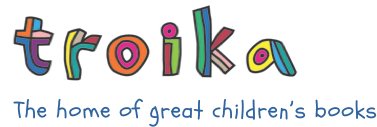“It’s very much a family story": Sue Klauber introduces her new middle grade novel 'Zinc'
Published this month is Sue Klauber’s exciting middle-grade novel, Zinc.
This is Sue’s first book for children and it’s set in the Second World War. “It’s very much a family story, in every way,” says Sue. How so?
Well, the story is based on the extraordinary experiences of the author’s father, uncle and aunt, each of whom played key roles in the war. What’s more, Sue’s decision to write the story was motivated by a desire to share it with her son, to show him the active and heroic participation of their North London Jewish family in the wartime struggle against tyranny.
“Zinc is an adventure based on the real-life history that makes me, me,” says Sue. “It’s not 100% biographical, but the three main characters, John, George, and Eva, are three siblings whose characters and experiences are strongly based on those of my father, uncle and aunt respectively."
“When I was a child I was fascinated by an old, beautifully carved wooden chest that was in my grandma’s flat (my grandma also appears in Zinc, as the siblings’ mother Ilonka). She kept all of the family photos, letters and official documents in that chest and, when she died and the chest came to live in our house – my childhood home, I was able to open it for the first time and carefully extract its treasures!
“Much later, I inherited the chest as a grown-up, after John, George and Eva had all died, and so I moved it into my own family home. As an adult with my own children, I now looked at its contents through quite different eyes. I saw how my elders had moved from childhood through to adulthood, and felt moved by the experiences and challenges – huge challenges – that they went through along the way. I was absolutely fascinated by all of the secrets contained in that chest and, like a sort of historical detective, I sought to piece together the clues to form a fuller picture of their lives. This was the inspiration for Zinc!
Author Sue Klauber
“From the contents of the chest, I knew some tantalising facts about the three siblings’ World War Two years, and so I set out to research them in more detail. The trio was born into a Hungarian, Jewish, British family. John became a code-breaker at Bletchley Park, while George was a secret agent for the Special Operations Executive, parachuting behind enemy lines. Meanwhile, Eva had married a Hungarian man and they went back to live in Hungary. The Hungarian government was an ally of the Nazis, which put Eva in great danger. That was as much as I could find out, since both John and George had signed the Official Secrets Act and had therefore sworn not to say anything about their exploits for the rest of their lives!
“So, the events in Zinc didn’t actually happen (as far as I know!). Instead, the book imagines how the family’s story might have been - based on a combination of the contents of the chest, records about the family that I found in the National Archives, and research into code-breakers at Bletchley Park and agents for the Special Operations Executive.
“Zinc tells the stories of the three siblings just at the point when they’re entering into a war that was so critical to their country and to their family’s safety, and so dangerous. But it’s also a story about personal relationships and decisions, and how these are shaped by our experiences. For example, the book explores some of the childhood games that gave rise to the characters’ later doubts about their ability to carry out their roles in the war. It also charts how they strive to grow in confidence, as well as how (and why) they seek to repair their relationship with each other.
“My hope is that Zinc will inspire children to be inquisitive about their own family stories and histories.”


